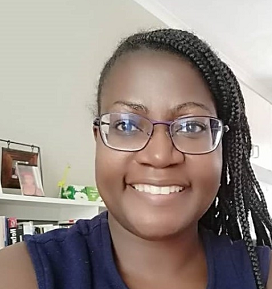
Inclusive education is essential in Namibia for persons with disabilities

By Rachel Shiweda
GIZ Technical Advisor.
The National Day of People with Disability is celebrated in Namibia on 10 June. A day that commemorates, celebrates, and focuses on a very underserved community in Namibia. It was created to make people understand that we need to live in a nation with zero discrimination against persons with disabilities.
This day embodies the Leave No One Behind and the UN Sustainable Development Goals (SDGs), and as such Deutsche Gesellschaft für Internationale Zusammenarbeit (GIZ) in Namibia works with national stakeholders to foster and further the concept of an equitable Namibia. It especially engages the SDG-10, which challenges and is focused on ‘Reduced Inequalities.’
There are many facets to creating an ‘inclusive’ nation, a country where everyone feels welcome and respected and has a role to play commensurate to their abilities.
Creating an environment like this requires starting at the primary school level, right through to university, and beyond. This means embracing, investing, and promoting ‘inclusive education.’ But what is ‘inclusive education in the first place? It is when an environment is created where different children are brought together in a classroom, allowing everyone the same chance to grow and learn. In a broader sense, schools and society accept, understand, and cater to students’ differences and diversity, whether physical, cognitive, academic, social, or emotional.
Namibia unfortunately has very few academic facilities that cater to persons with disabilities or who have diverse needs. Dagbreek School for the Intellectually Impaired and Eluwa Special School are located in Windhoek and Ongwediva, respectively. The other regions across Namibia also need schools like this. There are children across Namibia that need a chance and deserve inclusive education. Across the world, we are realizing that ‘one size does not fit all.’ We must create an’ inclusive education’ environment to give people with different needs and abilities the chance and opportunity to be engaged members of society.
The Land of the Brave is a very diverse nation, with people from different tribes who speak different languages and have different cultures and backgrounds, and yet we must all find a way to live, learn and work together. This can only happen if we foster a mutual understanding and embrace each other’s differences and similarities. This includes catering to learners with different abilities.
Benefits of an Inclusive Classroom: Pupils learn the significance of diversity and equality; learners develop empathy and sensitivity to people who are different from them; it improves a child’s confidence and it provides teachers with many creative ways to include problem-solving and teamwork in their lessons.
GIZ, together with its Namibian stakeholders, such as the National Disability Council of Namibia, The Division Disability Affairs, as well as many others, is sensitizing people to the challenges, hurdles, and difficulties that persons with disabilities face. Imagine we can start at the primary school level and create a nurturing environment for persons with different capabilities? In that case, we can become more accepting as a nation and create opportunities and open doors that used to be firmly shut. This is all part of the overall drive to Leave No One Behind (LNOB) as part of the Sustainable Development Goals.
Education and inclusive education are the very foundation of this future. Keeping certain learners separate from others, especially those with disabilities, is wrong on every level and will never lead to an inclusive society. We must work together and bundle all stakeholders’ strengths to ensure that innovation and transformative solutions are catalysts for inclusion for persons with disabilities and can lead to a more equitable world—or at least a more equitable Land of the Brave.










































